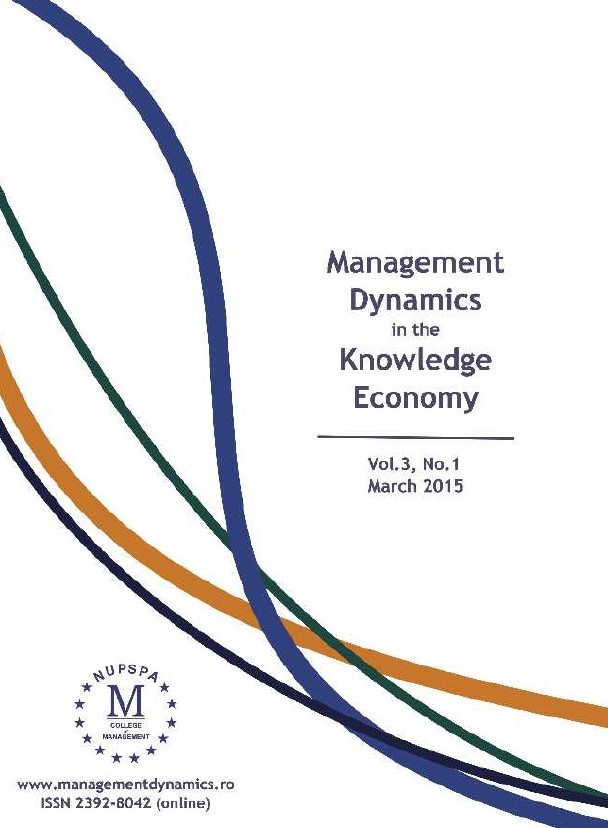An Exploratory Study Regarding the Relations between Time Perspective, Achievement Motivation and Self-Regulation
An Exploratory Study Regarding the Relations between Time Perspective, Achievement Motivation and Self-Regulation
Author(s): Dan Florin Stanescu, Mădălina Elena IORGASubject(s): Business Economy / Management, Human Resources in Economy, Socio-Economic Research
Published by: Asociatia Romano-America a Managerilor de Proiect pentru Educatie si Cercetare
Keywords: time perspective, achievement motivation; self-regulation; goals; behavior;
Summary/Abstract: Research conducted so far has emphasized the link between specific time orientations (mainly future) and a series of behaviors associated with health, risk-taking or academic achievement. Although time perspective was investigated as a cognitive-motivational concept with important implications on learning outcomes and behavior, there is little or no evidence concerning the effects of time perspective on work related achievement motivation. Similarly, albeit time perspective was studied in relation with other individual variables that might provide insights for a better understanding of its volitional nature (such as, locus of control, optimism/pessimism or self-determination), self-regulation is one such variable, which has not yet been considered. The present study sought to investigate the possible associations between different time perspectives, self-regulation and achievement motivation. The study was conducted using a survey method on a convenience sample of 67 MA students. Results show positive associations between future time perspective and self-regulation, and negative associations between present fatalistic perspective and self-regulation, respectively past negative perspective and self-regulation. Likewise, achievement motivation seems to be positively related to future time perspective, and negatively related to past negative and present fatalistic. The present findings suggest taking into account the way in which individuals assign the personal and social experiences to time frames, which help them confer order, coherence and meaning to their experiences in work settings. Concurrently, since time perspective is associated with problematic behaviors, it could be included in the study of work-related behaviors (counterproductive or organizational citizenship behaviors) along with self-regulation.
Journal: Management Dynamics in the Knowledge Economy
- Issue Year: 3/2015
- Issue No: 1
- Page Range: 7-24
- Page Count: 18
- Language: English

